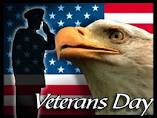 On November 11, 1918, at 11:00 a.m., fighting in World War I came to a halt. Seven months later, the Treaty of Versailles was signed that ended “The Great War,” also known as “The War to End All Wars.” One year later, President Woodrow Wilson proclaimed November 11 as “Armistice Day.” Armistice means the end of fighting. World War I – known at the time as “The Great War” - officially ended when the Treaty of Versailles was signed on June 28, 1919, in the Palace of Versailles outside the town of Versailles, France. However, fighting ceased seven months earlier when an armistice, or temporary cessation of hostilities, between the Allied nations and Germany went into effect on the eleventh hour of the eleventh day of the eleventh month. For that reason, November 11, 1918, is generally regarded as the end of “the war to end all wars.” On June 4, 1919, The United States Congress officially recognized the end of World War I with these words: Whereas the 11th of November 1918, marked the cessation of the most destructive, sanguinary, and far reaching war in human annals and the resumption by the people of the United States of peaceful relations with other nations, which we hope may never again be severed, and Whereas it is fitting that the recurring anniversary of this date should be commemorated with thanksgiving and prayer and exercises designed to perpetuate peace through good will and mutual understanding between nations; and Whereas the legislatures of twenty-seven of our States have already declared November 11 to be a legal holiday: Therefore be it Resolved by the Senate (the House of Representatives concurring), that the President of the United States is requested to issue a proclamation calling upon the officials to display the flag of the United States on all Government buildings on November 11 and inviting the people of the United States to observe the day in schools and churches, or other suitable places, with appropriate ceremonies of friendly relations with all other peoples. Originally, Veterans Day was Armistice Day. In 1938, Congress declared that November 11 be set aside for prayer and thanksgiving for the end of World War I. However, after World War II and the Korean War, the U.S. Congress decided to change this day to Veterans Day, thus honoring veterans of all wars. On October 8th, President Dwight D. Eisenhower issued the first Veteran’s Day Proclamation, which stated: "In order to insure proper and widespread observance of this anniversary, all veterans, all veterans' organizations, and the entire citizenry will wish to join hands in the common purpose. Toward this end, I am designating the Administrator of Veterans' Affairs as Chairman of a Veterans Day National Committee, which shall include such other persons as the Chairman may select, and which will coordinate at the national level necessary planning for the observance. I am also requesting the heads of all departments and agencies of the Executive branch of the Government to assist the National Committee in every way possible." In 1968, by an act of Congress, Veteran’s Day and three other holidays were moved to Mondays, so Americans could celebrate these days with a three day weekend. Many complained that this took away from the original purpose of the holidays. In 1975, President Ford signed into law to observe Veteran’s Day on November 11, where it is celebrated today. A poem written by Canadian soldier John McCrae during World War I is often remembered by those studying World War I. Flanders is a town in the country of Belgium. Major John McCrae was a military doctor and artillery commander, and it is believed he wrote this poem after witnessing a friend killed in war and burying him. by John McCrae, May 1915 In Flanders fields the poppies blow Between the crosses, row on row, That mark our place; and in the sky The larks, still bravely singing, fly Scarce heard amid the guns below. We are the Dead. Short days ago We lived, felt dawn, saw sunset glow, Loved and were loved, and now we lie In Flanders fields. Take up our quarrel with the foe: To you from failing hands we throw The torch; be yours to hold it high. If ye break faith with us who die We shall not sleep, though poppies grow In Flanders fields. Questions 1. Read out loud the poem, twice. 2. What date is Veteran's day? 3. Why was this particular date chosen for Veteran's Day? 4. What treaty ended World War I? 5. What were the intentions of the U.S. Congress as to how November 11th would be commemorated? 6. When was Armistice Day changed to Veteran's Day? Why? 7. Why did President Ford sign into law to commemorate Veteran's Day on November 11th? 8. What did John McRae write in May 1915? 9. What does "The Dead" urge the living to do in the poem by John McRae? 10. Based on the poem, was John McRae urging others to continue fighting or stop fighting? Other Tasks: 1. In your own words, write what John McRae's poem means. 2. Is this poem an anti-war poem, or is it an inspiring poem for soldiers to fight? 3. What words from the poem give you insight into what McRae was thinking? 4. Thank at least one veteran today.
0 Comments
Leave a Reply. |
John De GreeJohn De Gree writes the current events with a look at the history of each topic. Articles are written for the young person, aged 10-18, and Mr. De Gree carefully writes so that all readers can understand the event. The perspective the current events are written in is Judeo-Christian. Receive Articles and Coupons in Your EmailSign Up Now
For Email Marketing you can trust. Archives
June 2024
Categories
All
|
|
SUPPORT
|
RESOURCES
|
|


 RSS Feed
RSS Feed



